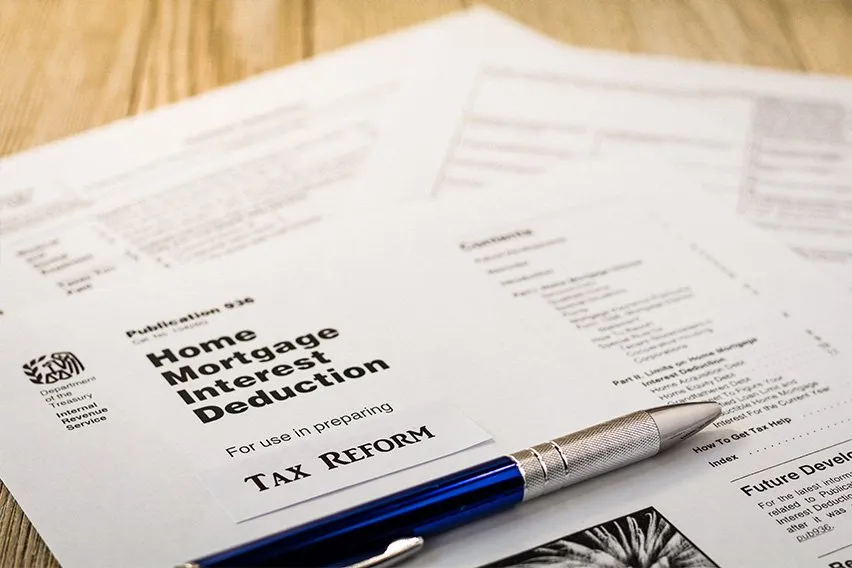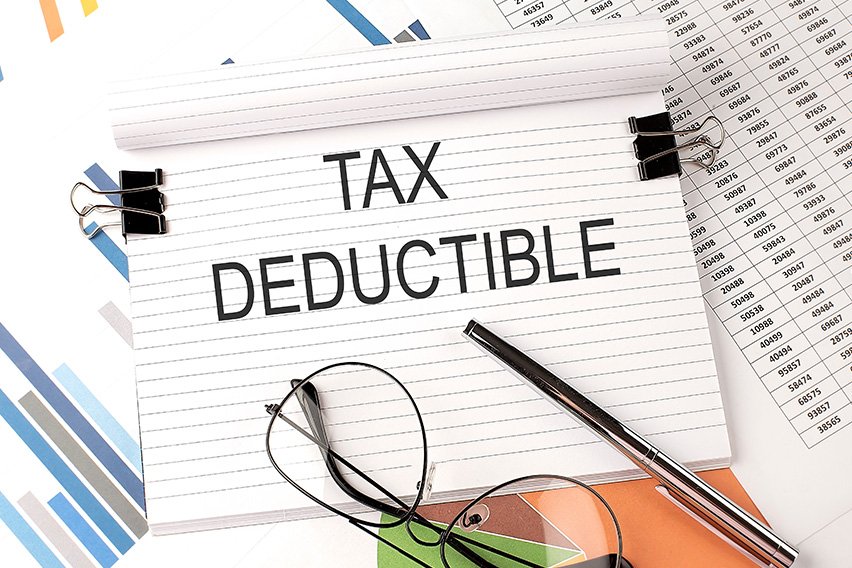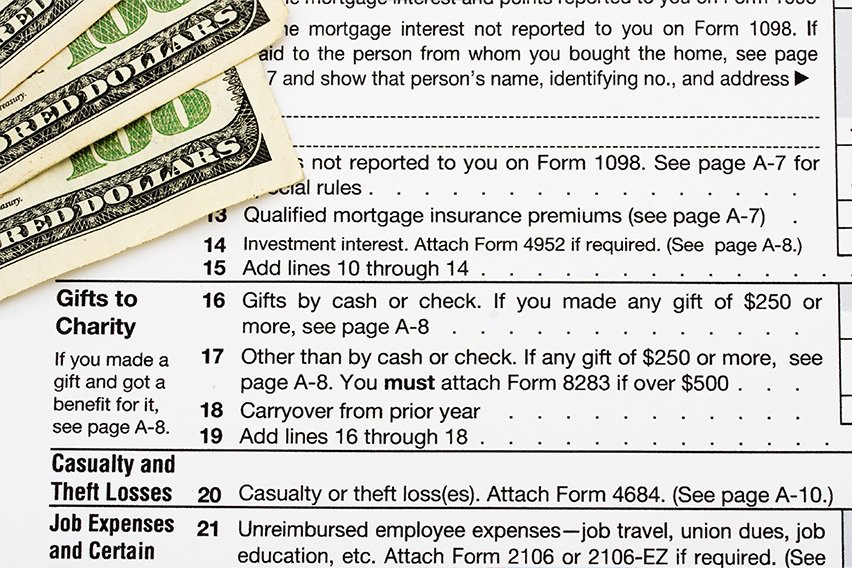Is Interest on Mortgage Tax Deductible? a Primer.

Homeowners who purchased their property on or after December 15, 2017, are able to deduct interest paid on mortgages valued up to $750,000. Deductions for home equity loans may also be tax deductible if it meets certain criteria and the total figure of the loan, when added to the mortgage, does not exceed $750,000.
Here’s What We’ll Cover
How Much Do You Get Back from Mortgage Interest Deduction?
How Much of Your Property Taxes Are Tax Deductible?
How Much Do You Get Back on Your Taxes for Student Loan Interest?
Can You Write-Off Margin Interest?

How Much Do You Get Back from Mortgage Interest Deduction?
The total savings depend on the tax bracket of the homeowner, and the price of the home being purchased. As well, changes came into effect on Dec 15, 2017 that lowers the amount a deduction can be claimed on. Today, homeowners can deduct interest on a mortgage valued up to $750,000 (or $375,000 if spouses are filing separately). Previously this number was $1,000,000 (or $500,000 each). When home equity loans are added to the mix, the potential tax deductions require a little more scrutiny. Let’s use an example.
On January 14th, Luc and Sylvie Jackson bought a home in Clarendon Hills, a suburb of Chicago. The mortgage was for $550,000. The real estate market was red hot though, and it was hard for them to find a home at a price they could afford. As such, the home was pretty dated, and needed some work, including the addition of a small room in the back. They took a home equity loan of $200,000 to finance these renovations. Because the loans did not exceed $750,000, the Jacksons can get tax deductions on the full interest they are paying on both loans.
Let’s say though that Luc and Sylvie’s home was in pretty good condition and no renovations were required. They take out the $550,000 mortgage but want to add to the loan to pay off their personal credit card debts, as the interest rate they are paying is high. They take out an additional $30,000. Because the $30,000 is not directly related to improving the house, only the interest on the $550,000 mortgage is tax deductible.
The changes for deductions mortgage interest only affects those who purchased a home on or after December 16, 2017. Homes purchased before that time are not affected by the new rules. Those homeowners are able to deduct mortgage interest on homes valued up to $1,000,000, which can be a substantial tax deduction for homeowners.
The current plan is for the law to revert back to 2017 rules in 2026.
How Much of Your Property Taxes Are Tax Deductible?
Property tax deductions, including those associated with the SALT (State and Local Taxes) deduction, have also changed; they are now capped at $10,000. Homeowners should be aware of the limitations on the SALT tax deduction, as it plays a crucial role in determining the overall deductibility of property taxes on their federal returns.
How Much Do You Get Back on Your Taxes for Student Loan Interest?
You may be able to deduct up to $2,500 per year of interest paid on your student loans. However, the deduction begins phasing out (and then is completely eliminated) at certain income levels.
Can You Write-Off Margin Interest?
Yes, you can. Margin loans refers to money you borrow to invest. Margin interest is also referred to as “investment interest expenses”. The shares or funds you purchase are used as security for the loan. Typically margin loans are for heavy investors, and they can only deduct up to their net investment income.
Although investors can get a tax break on margin interest, margin loans are risky because the investors are betting that the stock will do well.
Other Questions Related to Is Interest on Mortgage Tax Deductible:
Can You Write-Off Interest on a Business Loan?
Can You Write-Off Business Credit Card Interest?

Can You Write-Off Interest on a Business Loan?
If you’re running a small business, the interest on your loan is a tax-deductible business expense. There are a few caveats though:
- You need to keep the receipts to prove that the money loaned was spent on business activities.
- You need to be liable for the money (in other words, it can’t be a loan from dad).
- The lender is officially recognized as such, like a bank.
Can You Write-Off Business Credit Card Interest?
Yes, interest on credit card purchases is also a tax-deductible business expense. You can’t do deductions for personal purchases, but interest on business related credit card expenses are completely acceptable.
You can only deduct the interest in the year you pay it. In addition to interest, annual fees for credit cards as well as late charges are also fully deductible.
RELATED ARTICLES

 7 Best Business Expense Tracker of 2025
7 Best Business Expense Tracker of 2025 Can You Claim Volunteer Work on Taxes? No, but Some Expenses Can Be.
Can You Claim Volunteer Work on Taxes? No, but Some Expenses Can Be. Tax Deductions for Start-up Businesses
Tax Deductions for Start-up Businesses Tax Deductible Donations: Can You Write Off Charitable Donations?
Tax Deductible Donations: Can You Write Off Charitable Donations? Tax Deduction for Legal Fees: Is Legal Fees Tax Deductible for Business?
Tax Deduction for Legal Fees: Is Legal Fees Tax Deductible for Business? Business Deductions: New Tax Plan Explained
Business Deductions: New Tax Plan Explained